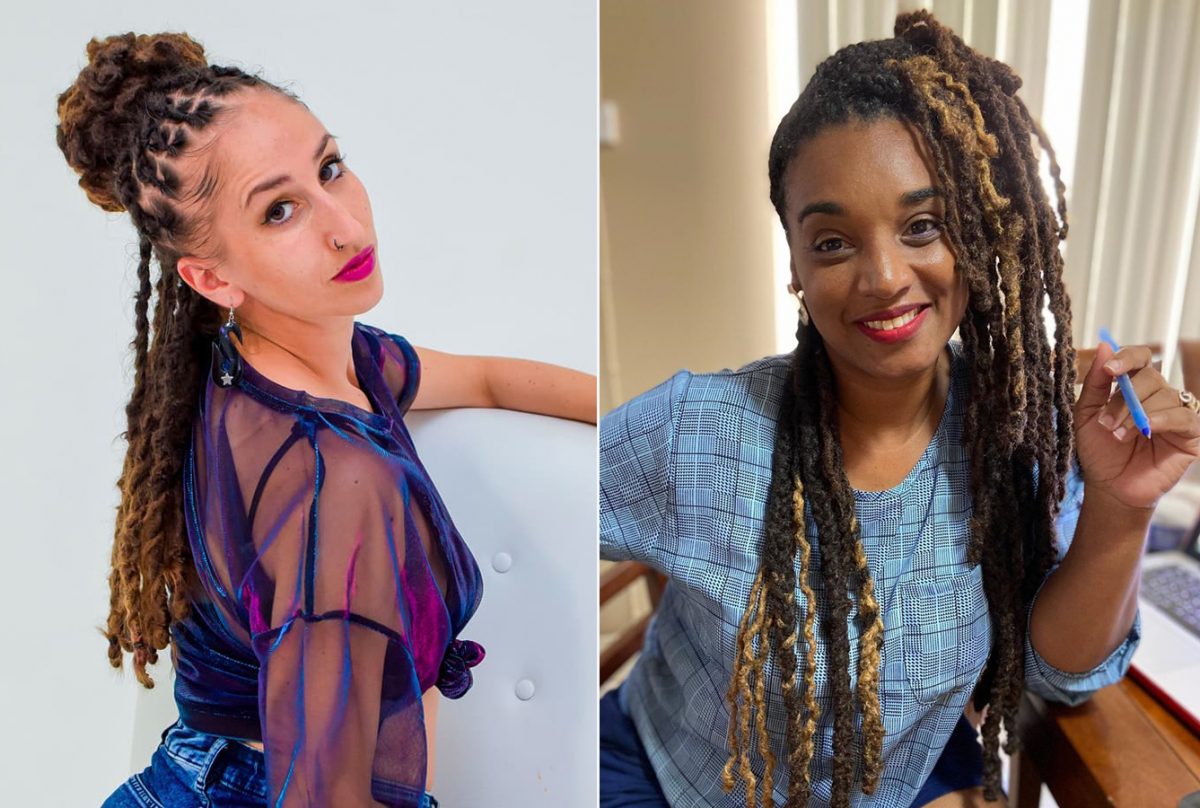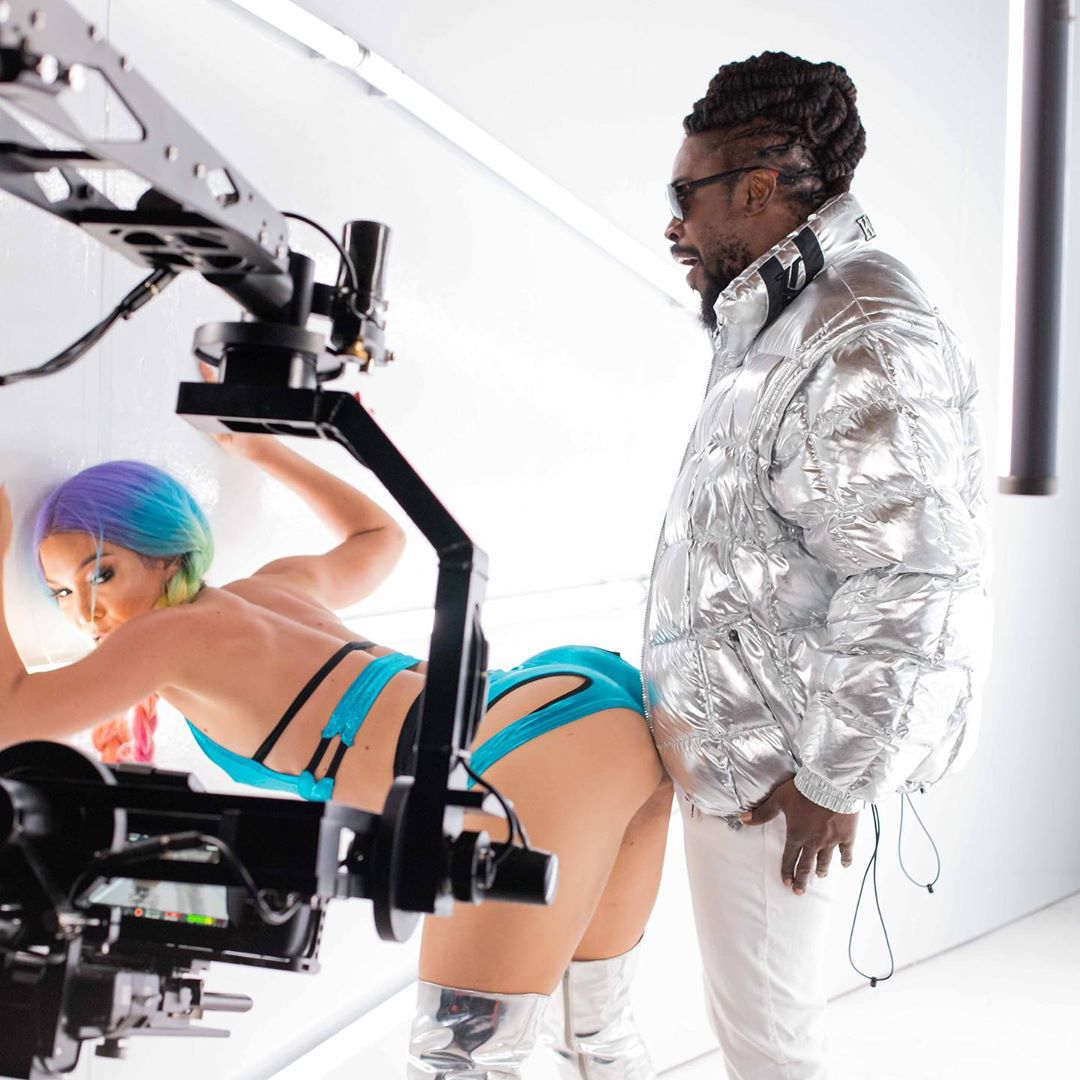Dancers Call Out White Privilege In Dancehall

There’s an elephant in the room in Dancehall that many are now calling out. The elephant is white privilege that some industry professionals say has become a prominent feature of Dancehall, marginalizing the very people who have nurtured and developed the culture.
The spotlight on racism, brought about by Black Lives Matter protests worldwide, has exposed various issues like white privilege and colorism in Jamaica. This has caused introspection by many who earn a living from Dancehall, being conscious of the images they present and the role they play in an industry that was built by the creativity and hard work of Jamaicans of African descent.
Recently, the King of the Dancehall, Beenie Man, was lambasted by some of his followers for choosing a caucasian dancer for a prominent scene in an upcoming music video. The deejay was called out for being tone-deaf to the sensitivities of the ongoing public discourse around the inequities of opportunities to black people, but he responded to the criticism by highlighting the fact that the production included several other dancers of African descent.

Now, a former German Dancehall queen is calling out the hypocrisy in Dancehall. In a post addressing the issue, Margarita Bonning, who goes by the stage name Swaggi Maggi and is a dancer, promoter, and researcher on dancehall studies, says that white privilege exists in Dancehall and she has personally experienced it. “Jamaica taught me so much. It also taught me what white privilege means. From the first time travelling there, seeing how I was, I as a white woman was so interesting for Jamaican men.”
Bonning says because of how she looked, she was favoured over local talent who were dark skinned, Afro-Jamaicans. “Seeing how I was immediately favoured when it came to auditions for videoshoots, commercials…Up to the point that I rather rejected taking a job instead of taking it from someone who more needs it.”
Bonning also said when Jamaicans were chosen for jobs, they were not paid properly. She called on the industry to do the right thing and treat Jamaican dancers better- “we coming from Europe, do not need these jobs, if it’s not to push our ego and ‘reputation’, as a dancehall dancer…Jamaican women do need these jobs, and they need them to be paid properly! If there is always others that offer to do a job for free because they CAN, then the industry will never start doing the right thing,” she noted referring to the practice of video producers, artistes and even corporate entities asking dancers to perform for free in exchange for “exposure” that many take up in hopes of building their careers.
One respondent to Bonning’s post disagreed with her that there is white privilege in Dancehall. Indeed, it does raise a question, why would Afro- Jamaicans be prejudiced against Afro-Jamaican dancers? “There are so many female empowerment and gender equality aspects to it. What other dancing style in any other genre puts the female as a strong protagonist and is allowed to express herself in the middle of the ring without being interrupted. You are misreading acceptance to a community as “white privilege.”
The female is most often a protagonist in Dancehall. However, many times these females are responsible for the costs of their unique and creative outfits, they practice and rehearse without any funding to cover their resources and when they perform. They are often underpaid or undercharge or perform for free, depending on the benefit they think they will receive.
It’s more common than many think and would like to admit one former dancer says, and she agrees with the comments made by Bonning.
Speaking exclusively with DancehallMag , Maria Hitchins, Adjunct Dance Lecturer at the Edna Manley College in Kingston and a former dancer by the name of Lady Sound Chat, confirmed that white privilege does exist. Coupled with other factors, she says it has led to a marginalization of Dancehall dancers of African descent, which has been a developing phenomenon.
“Jamaican dancehall dancers of Afro descent ruled the local and international space during the earlier decades for the simple fact that they were the sole creators and the only practitioners at the time. As the culture spread across social-economic boundaries both on the island and abroad, and further across race, ethnicity etc, black Jamaican dancers from inner-city communities were increasingly joined on the ‘dance floor’ by other hues.”
She added that foreigners who were previously content in their countries receiving the moves through music videos and the like, were now coming to the island “in an almost pilgrim like fashion, where they weren’t just satisfied to attend Dancehall events but also to learn the dances from the popular creators, as well as get up close and personal with artistes, sound system selectors, promoters which led to them being hired to do music videos, live stage shows performances and even as corporate branded hosts at events.”
Hitchins says as a result, black Jamaican dancers now have limited opportunities to go abroad because foreigners were now doing what local dancers would fly out to do, and now, they were marginalized in their own “yaad” when foreigners get the first bite of the pie or sometimes the entire pie!. “Jamaican artistes while touring [abroad] would hire dancehall dancers who were either non-Jamaicans or Jamaicans living abroad instead of those living in the island, who were the ones who had even contributed to the artiste’s popularity and aided in their touring opportunities.”

When asked about what may have led to the culture being taken over by outsiders and limiting the opportunities for dancers locally, a former dancer herself, Hitchins says the local dancehall community made up of everyone from artistes, music producers, and videographers, etc have unknowingly contributed to the marginalization. Even the dancers themselves are at fault. “The friendly disposition of Jamaica’s Dancehall dancers saw them not only teaching classes but also extending their friendships with others in the Dancehall arena, such as artistes, selectors etc to non-Jamaican dancehall dancers…this afforded them [foreigners] personal access upon which they then built their own relationships leading to job opportunities that would have otherwise gone to a Jamaican based dancer.”
Hitchins, who has worked as a dancer and choreographer with the likes of Shaggy, Agent Sasco, TOK, Bounty Killler, Wayne Marshall and others during the earlier days when Dancehall was a lesser known genre of music abroad, notes that many in the industry are to blame for the opportunities taken from local dancers and presented to foreigners. “the artistes, their management teams, music producers/ directors, corporate companies also share blame as ultimately the final choice is theirs in choosing who to hire. Some have stated that having foreigners, meaning dancers of different races, on stage or in music videos, gives them an ‘international appeal’. What does that mean? Are they suggesting that all-black Jamaican dancers won’t have the same pull?”
This obviously cannot be true as Dancehall itself is seen and recognized globally as a genre developed by black Jamaicans and they have received credit and recognition for it, as in the case of Mr. Vegas, Shabba Ranks and lately the rise of Ravers Clavers whose head is Ding Dong, mainly having Jamaican dancers of African descent, who are noted for their creativity and keeping the dance aspect in Dancehall alive and vibrant, Hitchins says.
She called out the hypocrisy of the industry players – “I think many of us are not willing to admit that somewhere in the rationale is a broader discussion about Jamaica’s socio-historical belief and acceptance that anything from foreign, including foreigners themselves, are better than or at least of a higher value. It is my view that this longstanding cultural notion is still prevalent throughout our society and thus informs some of the marginalization we see of Jamaican dancehall dancers at home, on the island.”
